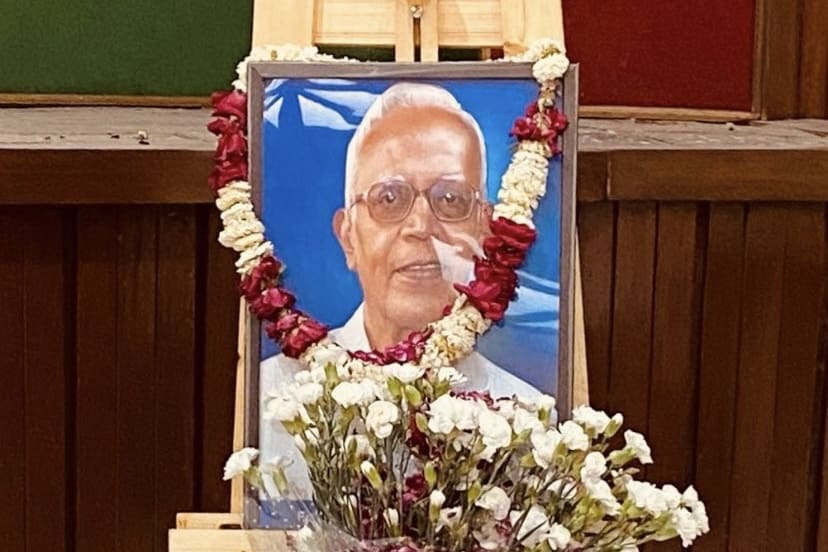
On the fourth death anniversary of Father Stan Swamy, members of the Jesuit community, human rights activists, and concerned citizens gathered in Delhi to honour his life and legacy—a legacy rooted in his tireless pursuit of truth and justice.
The memorial service, jointly organised by the Jesuits and the Catholic Associations of the Archdiocese of Delhi (CAAD), paid tribute to the 84-year-old priest and tribal rights activist, who died in judicial custody on July 5, 2021.
Speakers reflected on Father Stan’s lifelong commitment to the marginalised, his steadfast advocacy for Adivasi rights, and the ongoing state repression of human rights defenders. They also condemned the injustice surrounding his incarceration and death in custody.
Among them was Prof. Nandini Sundar, who underscored the continued criminalisation of dissent in India. Senior Advocate Colin Gonsalves sharply criticised the use of draconian anti-terror laws like the UAPA against activists and raised questions about judicial accountability, particularly the judges who persistently denied bail to the ailing 84-year-old priest. Father Cyril Anthony Samy SJ spoke movingly about Father Stan’s unwavering faith, courage, and commitment to justice, calling him “a living saint.”
Father Stan Swamy, a Jesuit priest and lifelong activist, spent decades in Jharkhand defending the rights of Adivasi and Dalit communities. In 2020, the National Investigation Agency (NIA) arrested him from his residence in Ranchi, accusing him and 15 other academics and activists—collectively known as the BK-16—of inciting caste violence in Bhima Koregaon and having links to banned Maoist organisations.
Two days before his arrest on October 8, 2020, Father Stan released a video in which he accused the NIA of fabricating evidence and pressuring him to travel to Mumbai for interrogation. Despite suffering from advanced Parkinson’s disease and other serious ailments, he was repeatedly denied bail on medical grounds. In prison, he struggled to perform basic tasks and was even denied a straw and sipper to drink water—a moment that came to symbolise the state’s apathy.
This story was originally published in maktoobmedia.com. Read the full story here.

